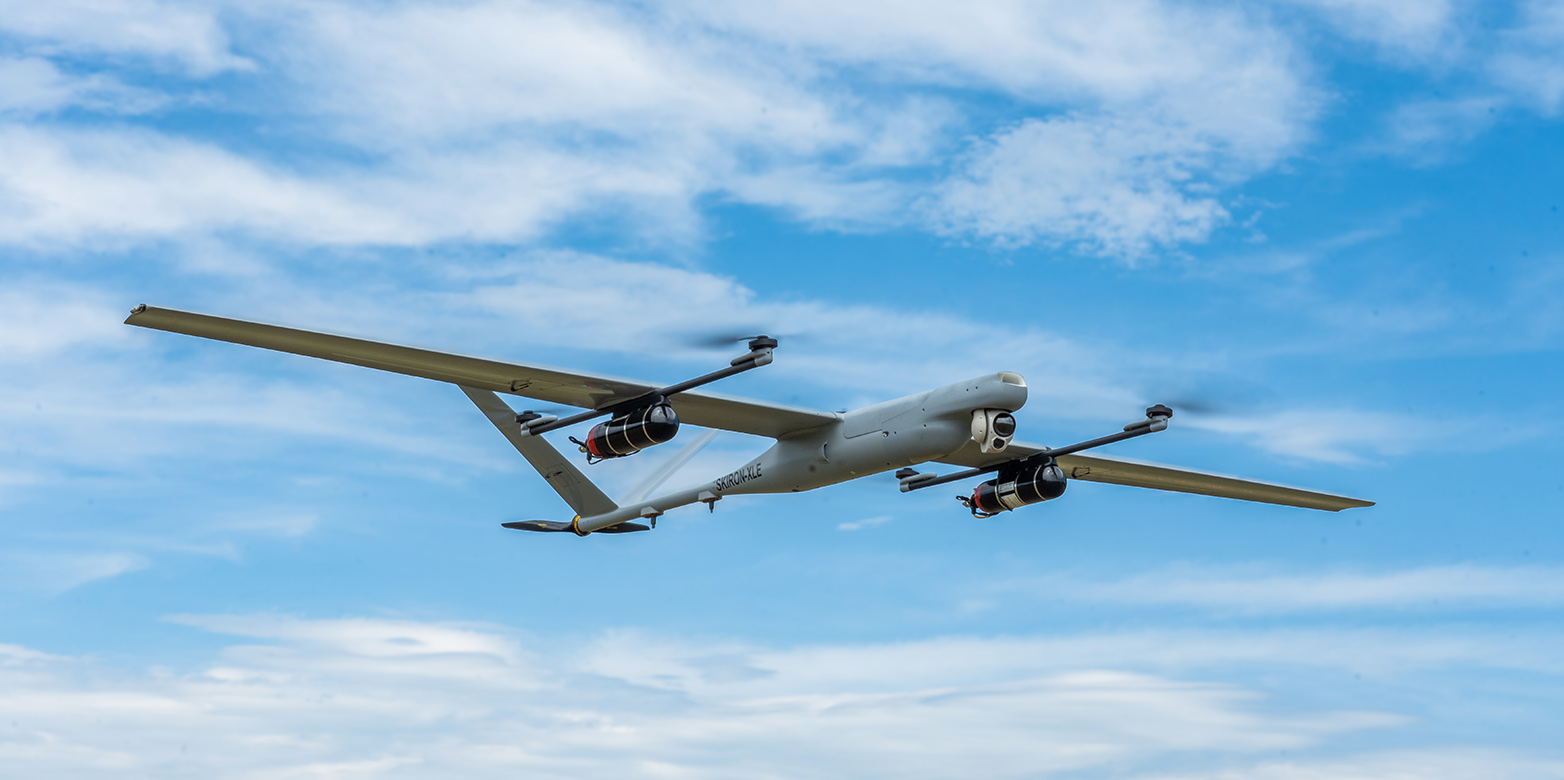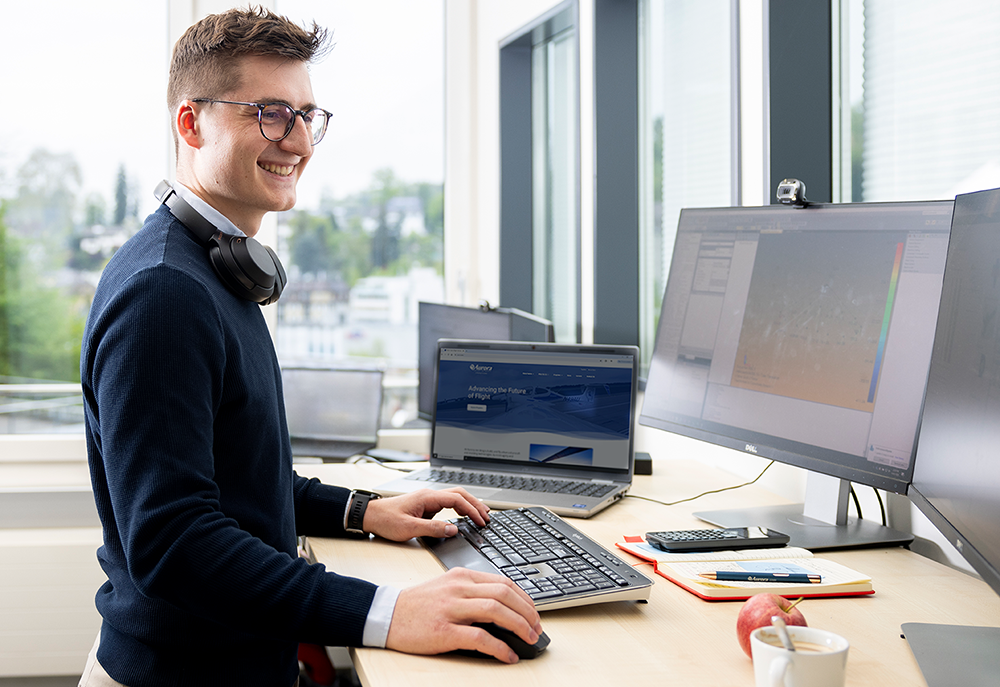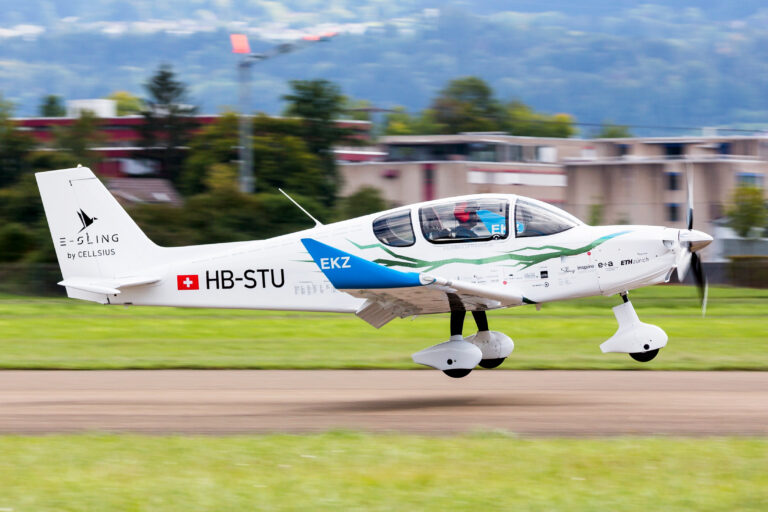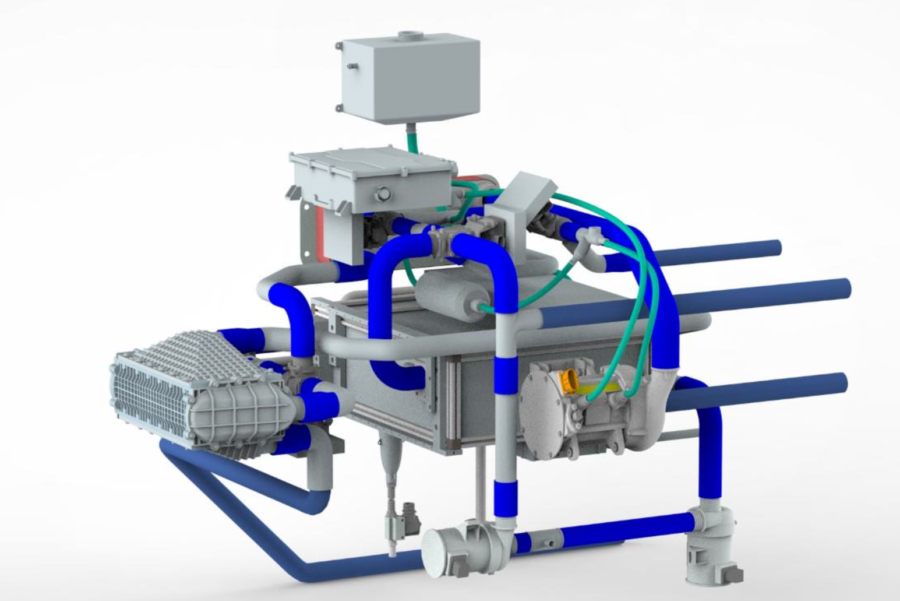Student creativity for sustainable aviation
Internships and thesis projects in industry are a win-win situation for students and companies. For ETH student Markus Metzler, this meant realising his dream of working on the latest developments in aerospace at Aurora Swiss Aerospace.

We spoke to Markus Metzler (ETH student) and Dr. Tigran Mkhoyan (Aurora Swiss Aerospace).
Markus, what excited you about your Bachelor's thesis?
I was given the opportunity to carry out a design study for a sustainable flight demonstrator project at Aurora. This involved designing a lightweight structure for an ultra-thin jury strut, which is a critical component requiring significant load-bearing capacity. Leveraging composite materials, I achieved a solution with a 30% weight reduction over the existing part. The collaboration with Aurora contributed significantly to my bachelor thesis while offering valuable insights into practical aerospace applications.
Thematically, the work suited me very well, since during my studies I worked on the development of a hydrogen-powered aircraft in the CELLSIUS project H2, a student project (the so-called focus project) at ETH Zurich D-MAVT.
Why did you choose to intern at Aurora?
I was drawn to Aurora for their work in developing unique prototype aircraft. The prospect of tackling new, unsolved challenges every day within a diverse and supportive team fascinated me. Contributing to the future of aviation at Aurora has been incredibly rewarding.
Did you stay at Aurora after your Bachelor's thesis?
Yes, I was able to continue working as a stress engineer on one of Aurora’s active programmes. As a stress engineer, I conduct finite element analyses on various aircraft components. This role allows me to gain a comprehensive understanding of aviation components and systems and contribute to the development of sustainable aviation.
Tigran, what is Aurora's experience with students?
We value the curiosity and fresh perspective that students like Markus bring to Aurora. They see things from a different perspective and ask critical questions. Their ability to question fundamental assumptions often leads to innovative solutions.
Is there a specific example where Markus has asked the right question and thus moved a project forward?
Yes, Markus's inquiry into the design of a frame holding the inverter prompted us to reconsider our approach. Through his suggestion, we optimised the frame design, resulting in material and cost savings.
What is your conclusion regarding student work?
We are committed to offering more opportunities for student involvement in the future. Collaborating with institutions like ETH Zurich allows us to identify and mentor talented individuals, providing them with a gateway to an exciting career in the aerospace industry.

Contact/Links:
external page Poject Cellsius H2
Do you want to get more "News for Industry" stories?
external page Follow us on LinkedIn
Are you looking for research partners at ETH Zurich?
Contact ETH Industry Relations

